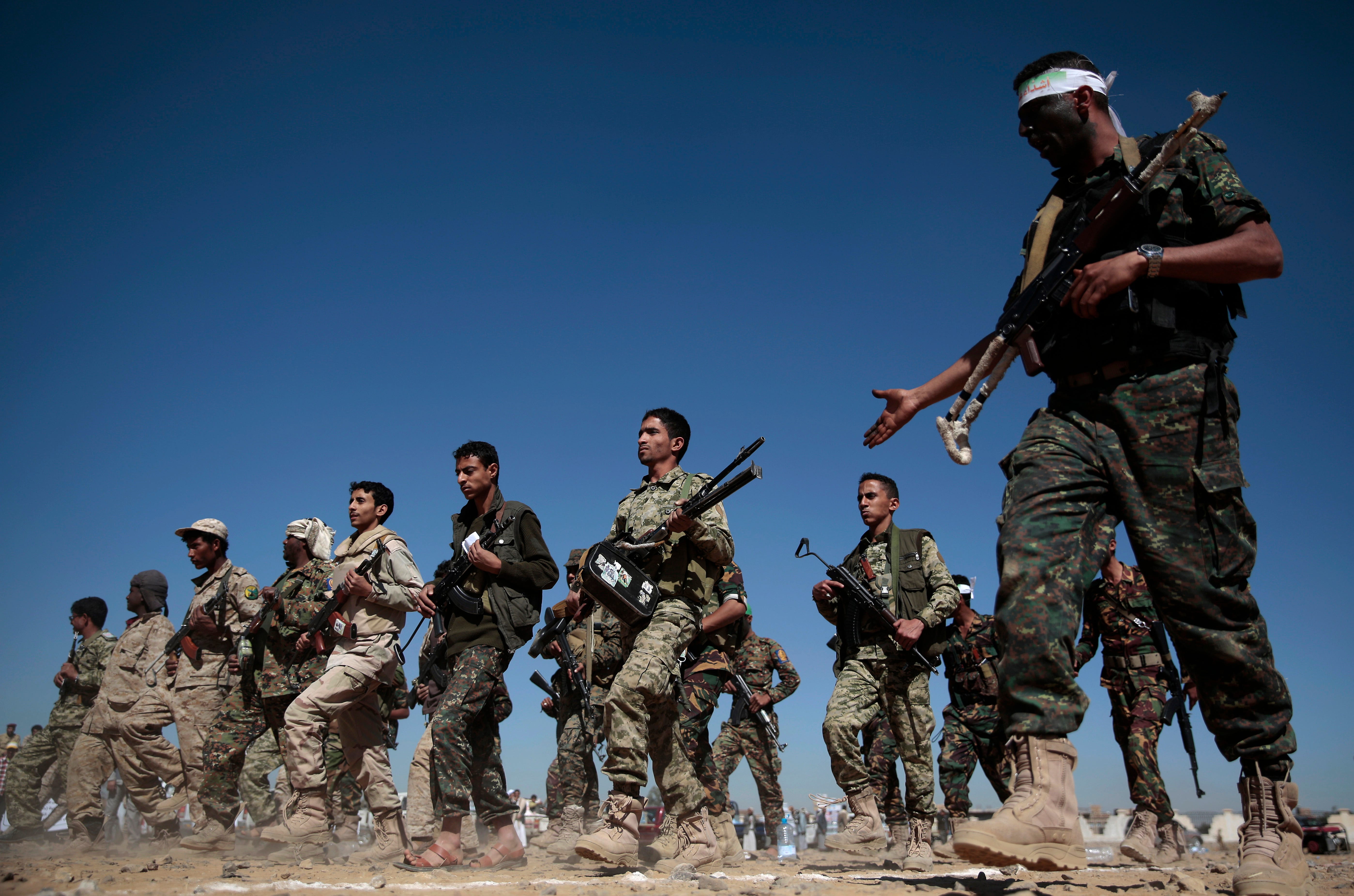Opinion: Houthi militia, mines terrorize Yemen
While much of the world is aware of the terrible humanitarian crisis that has enveloped the nation and people of Yemen, few have focused on a primary actor in this crisis -- the Iranian-backed Houthis. These extremists, whose flag calls for “Death to America," have inflicted every possible form of pain and suffering on the Yemeni people while largely escaping the world’s attention.

Right now, in areas across Yemen controlled by the Houthis, innocent Yemenis are forced to pay black market prices and bribes or give in to other Houthi demands for just the hope of gaining access to supplies of food, medicine, and other staples that relief organizations strive to provide free of charge.
KSrelief alone has distributed more than $2 billion in aid to Yemen over the past five years; however, the Houthis are blocking access to humanitarian assistance and have essentially turned food into a weapon to dominate and control the people who live in militia-controlled areas.
KSrelief has appealed to the United Nations, its agencies and the rest of the international community to address Houthi militias blocking, looting and even destroying humanitarian aid intended help the Yemeni people.
Aid interference is not the only atrocity being committed by the Houthi militias; they are also planting explosive devices in many parts of the country, transforming Yemen into the world’s largest mine field.
So far, they have scattered more than a million landmines, creating the single greatest civilian exposure to the threat of deadly landmines since World War II – and there is no end in sight. This is a ruthless campaign without military purpose, meant only to kill, maim, and permanently disrupt the lives of as many Yemeni families as possible.
My organization is leading a mine-clearing project in Yemen called “MASAM.” Through our on-the-ground efforts, we have witnessed the horrors of those killed by these landmines and have provided medical treatment to many of the civilians who have been permanently injured, including scores of children. Through MASAM, we have so far cleared more than 75,000 landmines, but that number doesn’t even begin to keep up with the pace at which the Houthis are laying even more explosive devices across the country.
The Houthis claim that these landmines are defensive in nature, a tactic to protect them from aggressors, but they have put landmines in schools and hospitals, in drinking wells and on farmlands – this is not a justifiable defensive strategy; this is plain and simple terrorism.
Families can no longer safely harvest their crops. They cannot securely access clean water. Displaced families that long to return to their homes simply cannot, because of the ongoing threat from these landmines. Children are at constant risk.
According to the Combating Terrorism Center at West Point, Iran has not only provided the Houthis with the technology necessary to construct their own landmines, they have also advised the militias on how to use them.
The Houthis militias are trained to disguise landmines as rocks and other natural objects, making the devices very difficult to detect and disarm, and therefore much more likely to bring harm to innocent civilians.
Already, thousands of Yemenis have been killed or injured, and that total will only continue to rise as Houthi landmines being dispersed at random today kill innocent Yemenis months, years, or even decades from now.
The Yemeni people alone cannot reverse Iran’s intervention or the Houthi threat. We need the full, unequivocal support of the international community. We need the world united as one voice to demand an end to the blockage of aid and the use landmines in Yemen.
Dr. Abdullah Al Rabeeah, Supervisor General of KSrelief, is a Saudi pediatric surgeon who has a made significant contributions to medicine both in his native Saudi Arabia, Yemen and abroad.